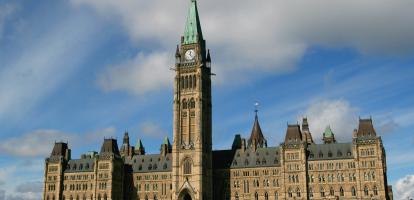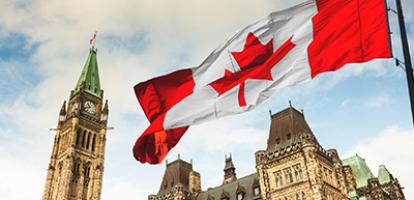By John Richards
A small jurisdiction in a monetary union, with a debt that exceeds 100 per cent of its gross domestic product. Its bonds enjoy more-or-less junk status. An election brings to power a left-wing government that replaces its incompetent conservative predecessor. Members of the new government and its union allies are divided: Should they raise taxes and cut spending – or default, leaving the financial mess for others to clean up? Central agencies had provided some financial relief, but then they cut it.
Greece in 2015? No. Saskatchewan in 1991.
The parallel is not perfect. If the province defaulted, its residents would still use the Canadian dollar. Presumably, the federal government would assume the provincial debt and put Saskatchewan under some form of trusteeship. Proportionately, the Greek debt is larger, and roughly half the debt owed by Saskatchewan residents was their share of the federal debt. Which at the time was also very high. But relative to the size of the local economy, Saskatchewan had run up the largest provincial debt, and, to further complicate matters, over the next five years Ottawa cut transfer payments to the provinces.
The province did not default. Over his first term in office, Premier Roy Romanow and his government dramatically raised taxes and reduced spending. Most of the spending cuts turned out to be “cost-effective”: They maintained quality of service, at lower cost. The best example is turning 60 small hospitals into primary-care clinics. The hospitals provided little hospital care; they had been kept open to maintain middle-class jobs in small towns. By the following election, in the spring of 1995, Saskatchewan had balanced its budget and the NDP won re-election.
Beyond the irony of a left-wing government resolving a Conservative-bequeathed deficit, Mr. Romanow reintroduced into the NDP the intuitively simple if hard-to-measure idea that to be credible as a champion of social programs, it had to demonstrate efficiency in the delivery of public services. The combination proved electorally successful. Mr. Romanow’s successful first term is among the arguments that mattered in the debate among former-prime minister Jean Chrétien’s cabinet over tackling the federal deficit.
All of that took place two decades ago in a small out-of-the-way province.
Back to the Greek tragedy. Most of the analysis of Greece by progressive economists – Paul Krugman and Joseph Stiglitz come to mind – has concentrated on the damaging effect of budget cuts and debt repayment on aggregate demand, leading to permanent recession. Fair enough. Macroeconomics explains part of the tragedy.
What most progressive discussion has played down is that “good governance” matters. Europe is a democratic continent and, in the long run, politicians in Germany, the Netherlands or Scandinavia cannot persuade their citizens to subsidize the Greek public sector, with its bloated public employment, tax evasion, politicized courts and premature retirement at generous pensions. The essence of the third bailout negotiated two weeks ago is that, first, the Greeks have to demonstrate they, too, value “good governance.” Then, and only then, will the leaders of the reasonably “well-run” countries agree to write down debt.
The events of the past two weeks are encouraging. Greek Prime Minister Alexis Tsipras has publicly acknowledged the critique of his country’s political conventions. He has enacted the reform legislation demanded by the other 18 euro-member countries. On the first set of laws enacted in the Greek parliament, his volatile ex-finance minister, Yanis Varoufakis, abstained, and a sizable minority of Syriza members voted against; on the second set of laws, a sizable minority still voted against, but Mr. Varoufakis voted with Mr. Tsipras. There is now speculation that Mr. Tsipras may emulate the career of Lula, the ex-Marxist union organizer who became the best president Brazil has ever had.
The Greek tragedy is in Act III. We don’t know how Act V turns out. Nonetheless, the experience of Mr. Romanow and Mr. Tsipras and Lula offer lessons for federal NDP Leader Thomas Mulcair. In October, Canadians may elect our first federal NDP government. Will it indulge in dubious public spending? Will it be willing to incur controversy among its supporters on behalf of “good governance?”
John Richards teaches in the Simon Fraser University school of public policy and is a fellow at the C.D. Howe Institute. Long ago, he was a MLA in Saskatchewan.
Published in the Globe and Mail on July 30, 2015




